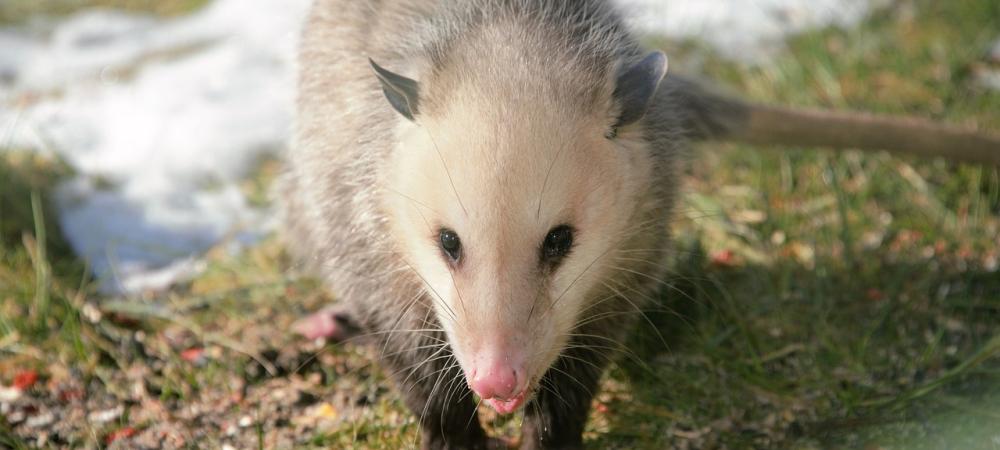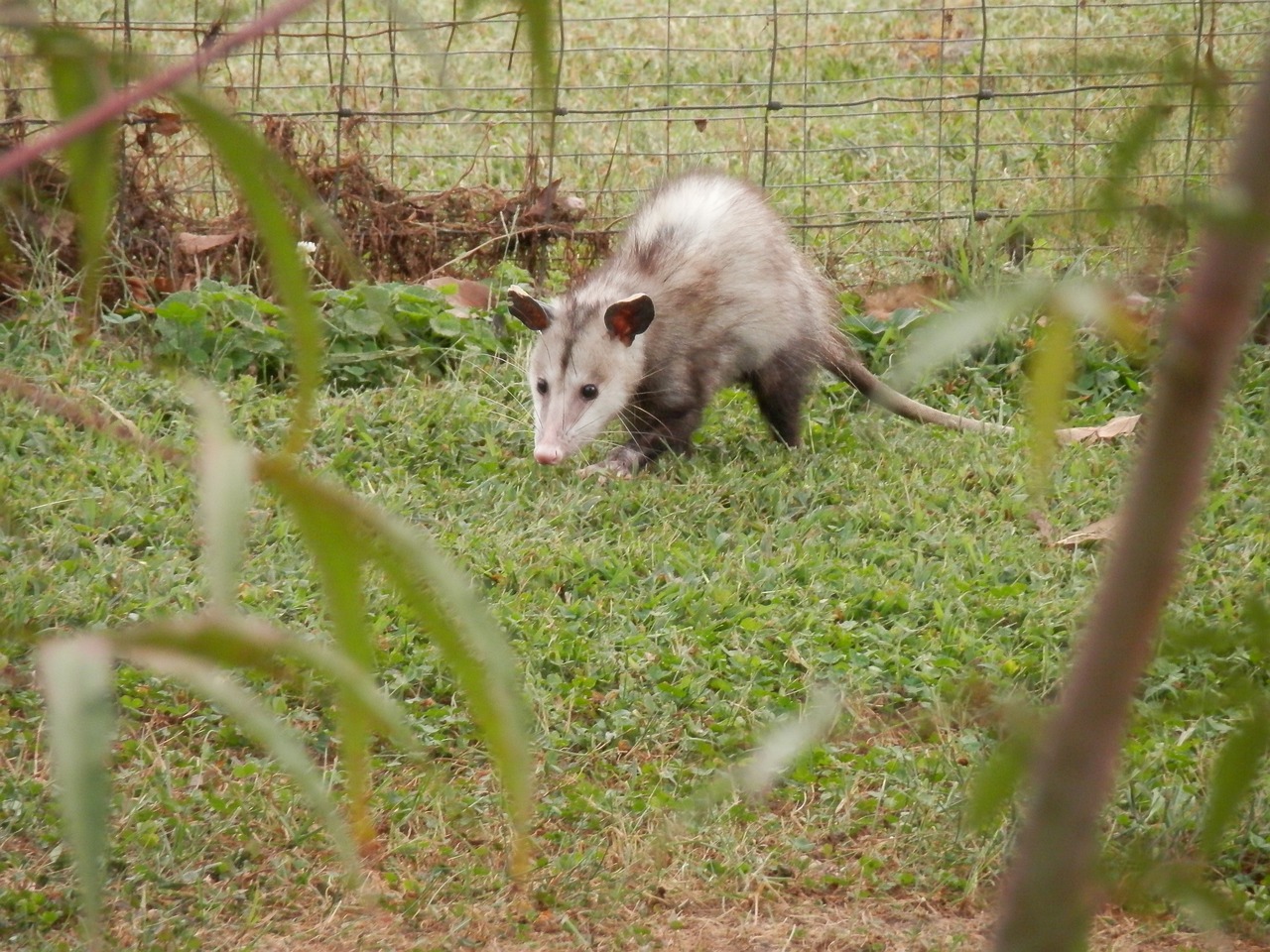Are Possums Dangerous?

Opossums are a common sight across the Mid-Atlantic, especially in the rural and suburban areas of Virginia and Maryland. These nocturnal marsupials, often seen wandering through backyards, rummaging through trash, or crossing roads at night, can stir concern for homeowners. The question arises: are possums dangerous?
Let’s explore the risks, benefits, and what homeowners in Virginia and Maryland should know about these unique creatures.
What Are Opossums?
Possums, specifically the Virginia opossum, are the only marsupials native to North America. Growing up to 3 feet long, including their tail, they are characterized by their white faces, gray bodies, and prehensile tails. Despite their sometimes frightening appearance, opossums are generally harmless creatures.
Are Possums Dangerous to Humans and Pets?
While opossums may look intimidating, they pose minimal risk to humans and pets. They are non-aggressive and prefer to avoid confrontation. If threatened, possums will "play dead" rather than attack, earning them the nickname “playing possum.” However, like any wild animal, they can bite if cornered or provoked.
For homeowners with pets, the good news is that opossums are less likely to carry diseases that pose a significant risk to cats and dogs. Unlike raccoons or skunks, possums are resistant to a lot of diseases due to their low body temperature, making them unlikely carriers.
Do Possums Have Rabies?
No, possums rarely have rabies. Opossums have a naturally low body temperature, around 94-97°F, which makes it difficult for the rabies virus to thrive in their bodies. In fact, they are among the least likely mammals to carry rabies compared to other animals like raccoons, bats, or skunks.
Though their defensive behaviors, like hissing or showing their teeth, may seem intimidating, opossums are generally non-aggressive and prefer to avoid confrontation. This, combined with their resistance to rabies, makes them relatively low-risk when it comes to disease transmission. However, it's still important to avoid handling or interacting with wild opossums.
Are There Benefits of Opossums in Your Yard?
Before you decide to take measures to remove opossums, it's worth considering the benefits they bring to the local ecosystem:
-
Natural Pest Control: Opossums are omnivores and feed on a wide variety of pests, including insects, snails, slugs, and even small rodents. They also help reduce tick populations, which is important for areas like Virginia and Maryland, where ticks are common and can carry Lyme disease.
-
Garbage Cleanup: Opossums are scavengers, often feeding on leftover food, fruit, and dead animals. While they may occasionally get into your trash, they help clean up organic waste in your yard.
-
Tick Control: Opossums are particularly good at reducing ticks. Studies have shown that a single opossum can kill thousands of ticks in a season, helping protect your yard and pets from tick-borne diseases.
-
Non-Aggressive Nature: Opossums are non-aggressive and generally avoid confrontation with people or pets. They are more likely to "play dead" than to fight, making them less of a direct threat compared to other wildlife.
-
Help with Garden Management: Opossums also eat overripe fruit and vegetables that have fallen to the ground, helping to prevent the spread of fungi and bacteria in your garden. They don’t typically damage healthy plants, making them a helpful presence in a garden setting.
While they may seem like a nuisance at times, opossums contribute to the local ecosystem and can provide natural pest control without posing significant risks.

How To Get Rid of Possums in Your Yard
Opossums, while beneficial for controlling pests, can become a nuisance when they start rummaging through your trash, damaging your garden, or making a home under your deck. Here are some things you can do to get rid of possums and keep them from coming back.
1. Remove Food Sources
Possums are opportunistic feeders and will take advantage of easy food sources around your home. To make your yard less attractive to them, follow these steps:
- Secure Trash Cans: Use bungee cords or heavy lids to keep possums from tipping over your garbage cans. Make sure to take out trash on the morning of pickup to reduce the time it sits outside.
- Clear Pet Food: Don’t leave pet food or water bowls outside overnight. Possums are nocturnal and may view these as an easy meal.
- Pick Up Fallen Fruit: If you have fruit trees, regularly pick up any fallen fruit or overripe produce from your garden.
- Bird Feeders: If you use bird feeders, consider bringing them in at night, as bird seed can attract possums.
2. Seal Off Entry Points
Opossums are known for taking refuge under decks, sheds, porches, and in crawl spaces. If you notice a possum has taken shelter in one of these areas, seal off any entry points after ensuring the animal is not inside.
- Install Fencing: Use chicken wire or hardware cloth to block access to spaces beneath structures. Be sure to dig it at least 6 inches into the ground, as possums may try to dig to gain entry.
- Close Openings: Look for gaps in your home’s foundation, vents, or garage doors that opossums may use to enter. Seal these openings with caulking, mesh, or metal flashing.
3. Use Possum Deterrents
There are several deterrents you can use to discourage opossums from entering your yard.
- Motion-Activated Lights or Sprinklers: These devices can startle possums and encourage them to avoid your property.
- Odor Repellents: Some homeowners find success using natural deterrents like crushed garlic, onion, or ammonia-soaked rags around areas where possums are frequent. These strong smells may repel them from the area.
- Commercial Repellents: There are sprays and granules available at hardware stores that contain natural ingredients like predator urine to scare off possums.
4. Humane Trapping
If an opossum has made a home in your yard and you’re unable to deter it, you may need to consider trapping. In Virginia and Maryland, trapping possums is legal, but there are guidelines to follow to ensure humane treatment.
- Use Live Traps: Use a cage trap baited with something possums enjoy, such as canned pet food, fruit, or peanut butter. Place the trap in areas where possum activity is high, such as near trash cans or garden beds.
- Check Local Regulations: Always check your local wildlife laws before trapping, as Virginia and Maryland have specific guidelines regarding the capture and relocation of wildlife.
- Relocate Safely: After capturing the possum, you must release it at least 5 miles away from your property in a suitable wildlife area. However, it's often best to call a professional wildlife control service to handle trapping and relocation.
5. Hire a Professional Wildlife Control Service
If you're dealing with recurring possum problems or an opossum has nested in a hard-to-reach area, calling a professional is the safest option. Pest control or wildlife removal experts in Virginia and Maryland have the tools and knowledge to remove possums humanely and provide advice on how to prevent them from returning.
Prevent Future Possum Visits
Once you’ve removed possums from your yard, it’s important to take steps to prevent them from returning. Here are some long-term solutions:
- Maintain Fencing: Regularly check for holes or gaps in your fencing or deck skirting and repair any issues quickly.
- Secure Compost Bins: Opossums are attracted to compost piles, so make sure bins are sealed tightly.
- Keep Your Yard Clean: A tidy yard with no clutter, fallen branches, or dense vegetation will make it less appealing to possums looking for food and shelter.
Opossums are a natural part of the ecosystem in Virginia and Maryland, and while they can be a nuisance, they’re generally harmless to humans and pets. By taking simple precautions, you can coexist with these marsupials while enjoying the benefits they provide.
If you’re concerned about possums on your property, remember to seek help from your local wildlife control professionals at Century Termite & Pest Control to handle the situation safely. Contact our team today!
